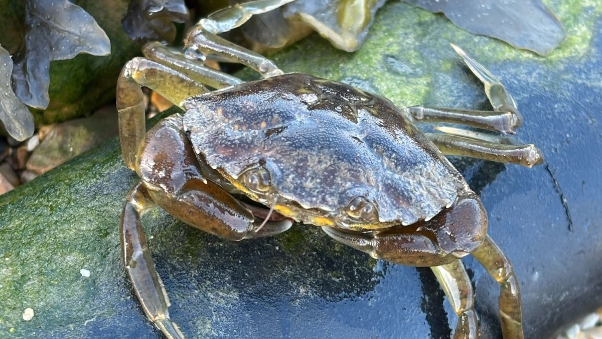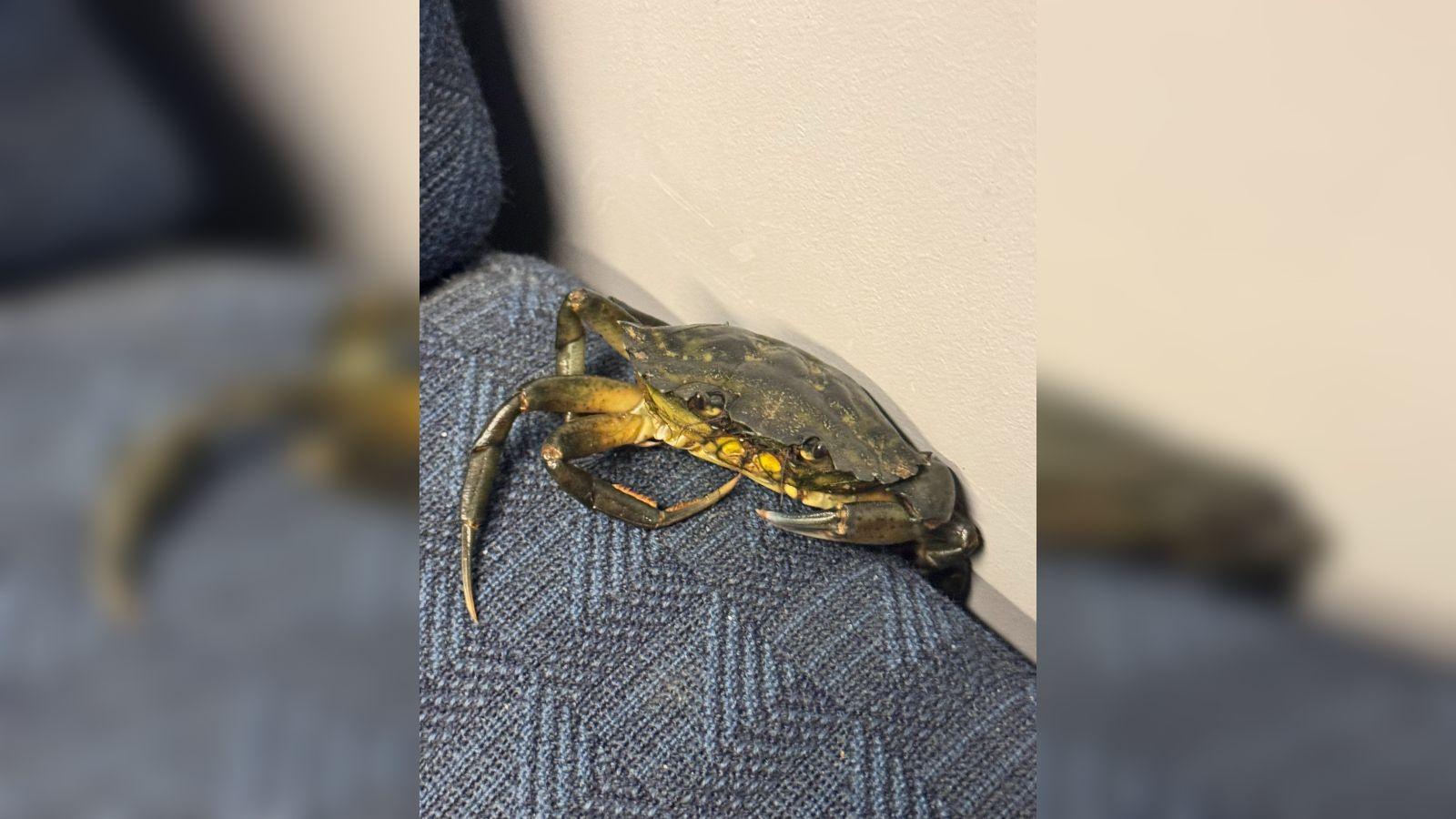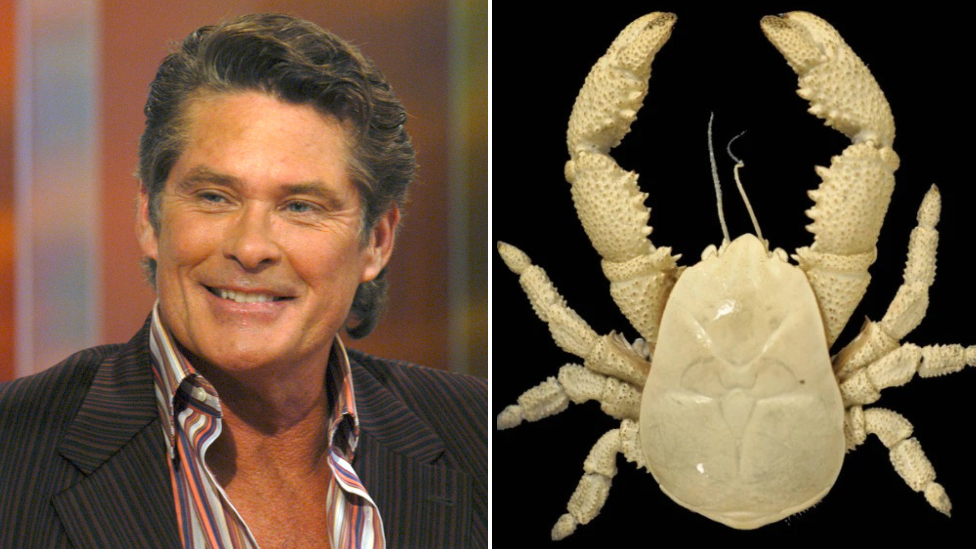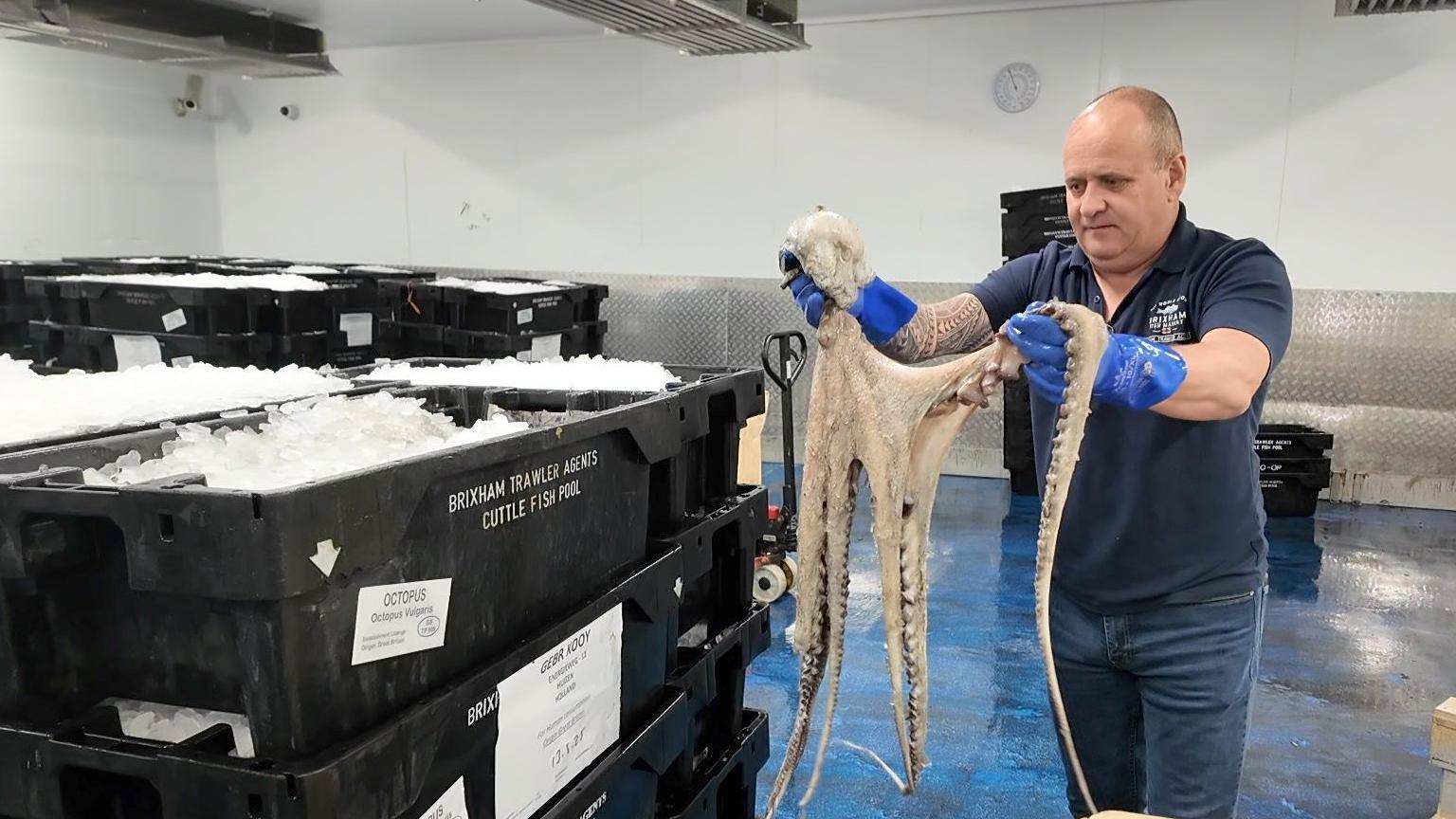Study finds female crabs drawn to power cables

There were 120 crabs used for the lab-based experiment
- Published
New university research has suggested the behaviour of female crabs could be influenced by underwater electric power cables.
The University of Portsmouth study found the crustaceans were attracted to the electromagnetic fields, similar to those in cables used by offshore wind farms.
Researchers raised concern that this could disrupt where female crabs lay their eggs, as the creatures might stay near underwater cables instead of continuing their natural migrations, which could impact population levels.
PhD student Elizabeth James conducted the study and said we need to think carefully about how offshore energy infrastructure affects marine life.
There were 120 crabs used for the lab-based experiment at the university, external, which saw the creatures exposed to varying levels of electromagnetic fields.
Female crabs were on average almost twice as likely to stay near areas with electromagnetic fields compared to those without them, while male crabs were not as affected and showed no preference to stay in a particular area.
Ms James said: "This is the first study to demonstrate sex-specific responses to submarine power cable electromagnetic fields in crabs.
"The fact that we're seeing such clear behavioural differences between males and females, even at relatively low, as well as high electromagnetic field strengths, suggests that we need to think much more carefully about how offshore energy infrastructure might be affecting marine ecosystems differently than we previously thought."
Rapid expansion
Underwater cables have multiple functions and there are currently 1.4 million km (870,000 miles) of telecommunication cables on the seafloor.
Co-author, Prof Alex Ford from the University of Portsmouth's school of the environment and life sciences, said: "As we rapidly expand offshore renewable energy to meet climate targets, we need to ensure we're not inadvertently creating new environmental problems while solving others."
Get in touch
Do you have a story BBC Hampshire & Isle of Wight should cover?
You can follow BBC Hampshire & Isle of Wight on Facebook, external, X (Twitter), external, or Instagram, external.
- Published19 September

- Published6 February

- Published19 May
